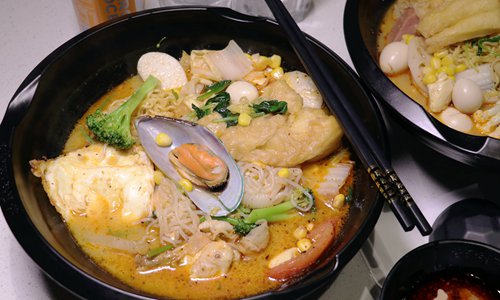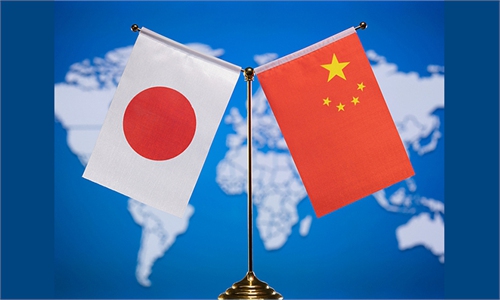ARTS / CULTURE & LEISURE
Health benefits, unique dining experience help Chinese malatang gain popularity in Japan

A bowl of malatang Photo: IC
The hashtag "Chinese malatang (spicy hotpot) goes viral in Japan" surged to the top of trending topics over the past few days. Numerous malatang restaurants have become a hot culinary trend in Japan, with long queues outside restaurants becoming a common sight.
The reason behind this phenomenon lies in the health-conscious image that malatang has adopted, along with the unique dining experience it offers.
Unlike Japanese oden, Chinese malatang is a spicy, numbing hot pot with bold, fiery flavors that is highly customizable to individual tastes.
Chen Su, the owner of a Chinese malatang restaurant, shared on the Japanese TV program TBS News that originally 80 percent of their customers were Chinese.
However, two months ago, they saw a surge in Japanese customers, and now, the ratio has drastically reversed, with nearly 90 percent of their patrons being Japanese.
An increasing number of Japanese media outlets and netizens are saying that malatang has successfully conquered the taste buds of people, especially young people in Japan.
As people's awareness of health continues to grow in Japan, lower-calorie options like vermicelli and the ability to choose ingredients have made it a favorite among many Japanese consumers.
According to TBS News, most of the customers visiting the restaurant are women, and social media posts often reveal that some people were introduced to the dish by their fitness trainers.
Malatang with Chinese herbs is renowned for its unique blend of dozens of medicinal herbs and spices. "It tastes quite healthy," is a common comment from locals after tasting it.
According to one of the popular restaurants serving malatang with Chinese herbs, its broth is infused with over 30 kinds of herbal spices, many of which are used as traditional Chinese medicine ingredients that have detoxifying benefits such as aiding weight loss and digestion.
"From a health perspective, the freedom to customize and the abundance of vegetables make it a relatively healthy food. Capsaicin stimulates the metabolism, accelerating cell activities and helping to burn fat," Luo Chaofan, a rehabilitation therapist at the National Health Commission of China, told the Global Times.
Li Runkai, a Chinese student living in Tokyo, told the Global Times that queuing up for Yang Guo Fu, a Chinese malatang restaurant, has become a trendy activity among many young people in Japan. "Many Japanese youngsters who crave malatang say that the unique 'DIY' ingredient selection offers them a special experience," he noted.
"Consumers often have a stronger sense of identity and satisfaction with products that allow them to express their personal preferences and meet their own needs, and malatang has effectively captured this," Li noted.
"You can choose more vegetables or add your preferred protein ingredients, like beef, chicken, or tofu. This freedom of choice makes malatang not just a delicious experience, but also a dietary option that meets individual needs."
By blending traditional Chinese spices with modern, health-focused dining preferences, Chinese malatang has captured the hearts of Japanese consumers. The popularity of malatang in Japan highlights the immense potential of Chinese cuisine in the Japanese market.



